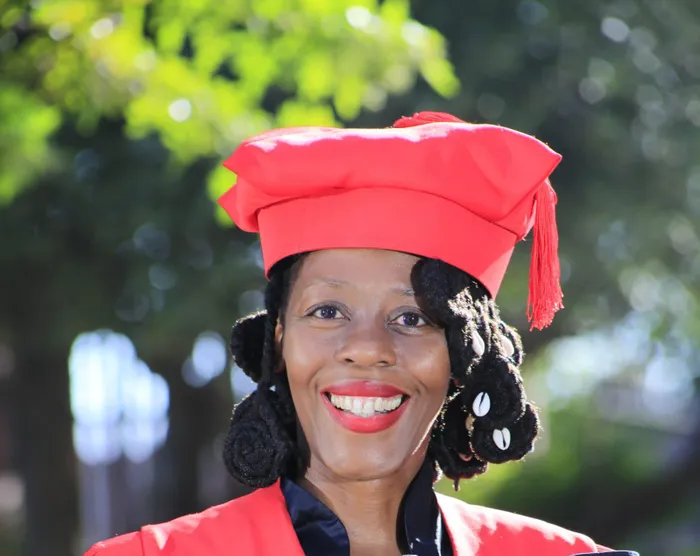
For Dr Sizile Zamandlovu Makola, maths is more than a subject at school - it's a career path.
Image: Supplied
Dr Sizile Zamandlovu Makola
Every time a school removes pure mathematics, a girl who could have been an engineer, scientist, or innovator is told: ‘This path is not for you’.
Mathematics is more than a subject on the timetable. It is the entry ticket to careers in science, technology, engineering, and mathematics (STEM), the very fields where South Africa struggles with skills shortages and where women remain underrepresented. When public schools, particularly those serving disadvantaged communities, quietly drop mathematics and offer only mathematical literacy, the impact goes far beyond curriculum. It is a structural decision that narrows opportunities, reinforces stereotypes, and undermines years of effort to encourage girls into technical fields.
In my own research on the factors that encourage girls to choose STEM subjects, I found four critical enablers: early confidence through exposure, parental encouragement, the promise of prosperity and the presence of role models. Each is weakened when mathematics is removed from the school timetable.
First, confidence depends on exposure. Girls who begin to see themselves as “good at maths” in primary school need continuity if that confidence is to grow. Without pure mathematics offered in later grades, that investment evaporates, leaving them with the message that their earlier efforts were misplaced.
Second, parental support loses traction when pathways close. Parents play an important role in motivating daughters to pursue science and technology, but their encouragement is hollow if schools themselves suggest these careers are unattainable by cutting off the prerequisite subject.
Third, the promise of prosperity shrinks. STEM careers are widely recognised as providing stability, income security, and opportunities for entrepreneurship. When mathematics is taken away, girls are excluded from these pathways and restricted to narrower, often lower-paid options.
Finally, role models grow scarce. Girls need to see women who have succeeded in science, engineering, and technology to believe such futures are possible. Yet if the subject pipeline collapses, fewer women will reach those positions, and the cycle of invisibility continues.
This is not only an education issue but also a question of social justice. Dropping mathematics may protect short-term school pass rates, but it entrenches long-term inequality. It communicates to girls, especially those in poorer and rural schools, that higher-order problem-solving and quantitative reasoning are not for them. In a country already grappling with gender disparities in education and employment, this step backwards is indefensible. South Africa cannot afford to undermine the very group it has spent years trying to bring into STEM. Every lost girl learner in mathematics is a lost potential scientist, innovator, or entrepreneur, someone whose ideas might have solved tomorrow’s challenges.
If South Africa is serious about building an inclusive future, then mathematics cannot be treated as expendable. Keeping girls in STEM is not a luxury, it is a necessity for the economy, for innovation, and for equality. Policymakers must reverse the retreat, parents must continue to demand opportunities, and schools must resist the temptation of quick fixes. To cut mathematics is to cut off possibility itself. For the girls sitting in classrooms today, that is nothing less than a betrayal.
Dr Makola is a senior lecturer in the College of Economic and Management Sciences (CEMS) at Unisa